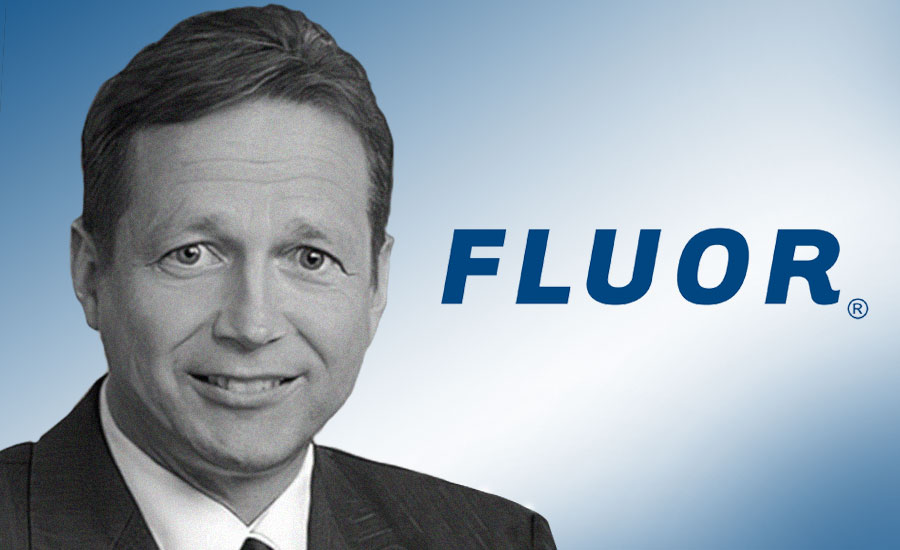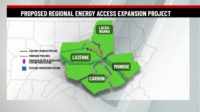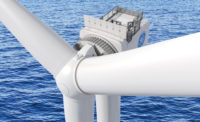In his Jan. 28 public debut as Fluor Corp.'s new CEO, David Constable outlined to investors and analysts the contractor's streamlined structure and future strategy priorities, which include boosted cost-plus contracting, more investment in non-traditional markets and capabilities, and rebuild of its bottom line.
Following losses since 2019 spurred by energy-market changes and revelations of cost overruns on fixed-price projects, Fluor announced earlier this month a major corporate realignment to focus global operations in three segments: energy solutions, urban solutions and mission solutions.
Already announcing more disciplined bidding practices, the firm intends to shed non-core businesses and grow technology and other services. But it will retain its position as a major industry engineer and construction contractor.
Fluor intends to be “the pre-eminent leader in technical and professional solutions, while still a leading E&C brand,” said Constable, officially CEO as of Jan. 1, and a former Fluor group president and chief executive of South African energy-chemicals firm Sasol Ltd.
“Fluor still is a large EPC firm, but we also have one of the most robust engineering cores in the industry,” he said.
In the new setup, Fluor's energy solutions unit will focus on now-transitioning chemicals and oil-and-gas sectors. "We have the expertise to play a key role in the energy transition," said Constable.
The urban solutions group will include work in growth infrastructure, mining, metals, advanced technologies, manufacturing and life sciences sectors, plus the professional staffing unit, while mission solutions will do U.S. government and select international client work.
Revenue Shift
Constable and other corporate leaders noted the firm's intent to shift revenue by 2024 to about 70% in non-oil-and-gas sectors, with more push into life sciences, advanced manufacturing and technology, and government security.
The focus also expands "legacy capabilities in mining, renewable energy and transportation,” said Andrew Wittmann, lead construction analyst for Baird Securities.
Also by 2023, Fluor looks for a backlog shift to more than 75% cost-plus work, with 70% of revenue expected to be tied to non-traditional energy work.
“We believe the shift is not heroic, largely accomplished via the completion of LNG Canada,” said Jamie Cook, lead construction sector analyst for Credit Suisse. “Still, the discipline to limit fixed-price work, become more return-focused, and diversify Fluor’s earnings stream to be less energy dependent is noteworthy.”
LNG Canada is a $14-billion, delayed liquefied natural gas terminal Fluor is building as part of a joint venture in British Columbia, which the firm said is about 35% complete.
Constable said, “the global economy is poised for a strong bounce in growth” in the second half of 2021, with Fluor “well positioned to take part” in U.S. infrastructure market growth, assuming enactment of President Joe Biden’s $1-trillion infrastructure package.
He also sees a boost in Fluor’s metals and mining businesses, with commodity prices expected to rise. But Constable said the firm will “pursue contracts with better terms and only consider fixed price with a strong history of delivering returns.”
Cook noted that “end-market challenges” in traditional energy-sector work are "a major headwind,” but cited Fluor's prediction of $20 billion in potential mining projects “that could move forward in the next couple of years.”
Steven Fisher, UBS construction analyst, said, “the reduced risk from greater bidding discipline and focus in technical services ... should be welcomed by investors.”
Cash Flow
Constable noted about $140 million in overall cost reductions already taken, with another $100 million anticipated this year.
Fluor also is set to generate several hundred million in cash with planned sales of its Ameco and Stork units, and stakes in P3 project assets and in NuScale, the small modular nuclear-reactor developer.
Constable also noted plans for new Fluor “niche acquisitions" in its government and advanced tech-life sciences units.
“The risk we see is that Fluor is aiming very broadly. Key competitors have narrowed focus on technical services or aim to dominate a relatively narrow set of end markets,” said UBS' Fisher. “Fluor plans to be diversified across services and markets and will have to prove it can effectively compete.”
Constable said he is “confident” the firm can deliver projected earnings per share of $3.00-$3.50 by 2024. “I will hold teams accountable,” he said.
Fluor’s focus on cost-plus work to cut risk, along with smaller projects, expanded technology and other services “while keeping strong and credible energy and mining EPC businesses ... is a realistic strategy,” said Wittmann. “Still, execution matters more in E&Cs, and only time will tell.”
Fluor will report its 2021 earnings guidance on Feb. 26, along with year-end 2020 results.
Vertical Research Partners last month re-rated Fluor's stock to Buy from Hold, with analyst Michael Dudas noting the firm's recovery "from project execution challenges ... as evidenced by maintaining a healthy $2 billion cash balance while not recording any additional material project charges. " He also pointed to the firm's "market momentum."






Post a comment to this article
Report Abusive Comment